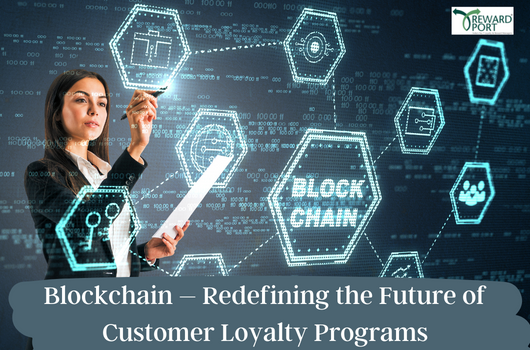Loyalty programs have slowly made their presence felt across travel, retail, financial services, and other business sectors. And since technology is progressive in nature, they are seeking for some kind of disruptive innovation that would turn them more consumer-friendly. Currently, companies are trying to implement new technologies that would suit their ever-growing needs. Blockchain is the next level innovation in this aspect and according to experts, it will bring the same change to banking what internet bought to media. Blockchain has become the first native digital currency for peer-to-peer value exchange.
It acts like a redemption for consumers since it provides them a single platform to access multiple loyalty programs. For example, imagine keeping only one wallet for all loyalty points and you don’t have to hunt for different options, limitations and redemption rules. Apart from that, there are a host of benefits for which Blockchain will redefine the future of all financial transactions in near future. Let’s explore.
1. It’s fast
The decentralized approach of blockchain diminishes the complications between buyer and merchant. Many stakeholders make e-commerce transactions unnecessarily complicated by involving parties that makes the process complicated by adding additional function and bureaucratic steps. Blockchain eliminates the need of a centralized authority, so the money can travel instantly in real-time.
2. It’s cheap
Blockchain reduces a lot of costs. All kinds of loyalty and financial transactions run through a lot of complex network of vendors, banks and payment processors. Blockchain removes all unnecessary third parties by allowing cheap and timeless peer-to-peer transactions. For any online transaction, a consumer ends up paying somewhere around 7% extra which can be minimized by switching to alternative mood of payments.
3. It’s Transparent
Transparency is one of the most salient features of Blockchain. Since it follows a distributed public ledger system, it’s possible to track every bit of information of a transaction. In e-commerce, marketplaces and brands usually keeps all information by themselves and charges the trader to pass them. Blockchain solves this issue by making all data visible and allows all involved parties to access data for free.
4. It’s secured
Blockchain uses certain security system which is decentralized and immutable in nature. In case of any kind of data loss, it can be traced back easily.
5. It’s easily accessible
Blockchain is digital in nature and by implementing it, a lot of additional costs can be minimized. By nature it’s less costly and has lots of potential to divert people’s minds to purchase and participate in global economy. And since it’s decentralized, the same loyalty points can be used for various purposes.
Blockchain is almost similar to the existing loyalty and transaction programs, except that it is cheaper and faster. In a country like India, it’s still early to declare it as the ultimate redemption for the existing loyalty programs since Indian government has not completely legalized it yet. But its transparent nature is a major step towards democratizing economy and bringing the power of economy back to people.


